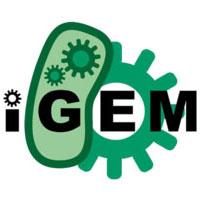To get to Mars, one clearly needs a rocket. After that, biology trumps rocket science, according to a team of students from Brown and Stanford. Their ideas for how engineered biology can enable space exploration captured a gold medal and best presentation award in the recent America regionals of the annual International Genetically Engineered Machine (iGEM) bioengineering competition. The team’s projects imagined several ways to harness the portable, self-replicating nature of life for space travel, which forbids transporting large quantities of anything. According to the team’s website: “The emerging field of synthetic biology will allow us to engineer microbial factories that will largely circumvent the limiting payload factors. These cellular factories will generate fuel, food, medicines, and building materials for settlers, but will consist of engineered cells that could be stored in a single test tube and regrown to production scale on site, as needed.” The team is now eligible for the world finals in Cambridge, Mass., next month.
Read more
